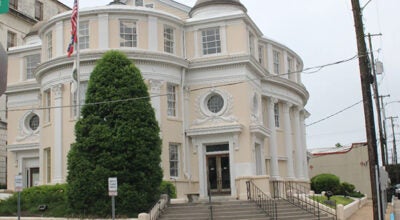City to hold utility rate meeting
Published 9:54 am Tuesday, April 21, 2015
The Board of Mayor and Aldermen could approve an ordinance setting a new set of increased water rates April 28.
“April 28, at 10 o’clock, we’re going to discuss these rates in an open session,” Vicksburg Mayor George Flaggs Jr. said at a Monday board meeting. “I believe in transparency.
“Let me make it clear to the public. I have no intention of asking the board to declare an emergency in Vicksburg for water and sewer, because it won’t happen,” he said, “because I believe it’s necessary to do preventive maintenance to not have to do that. I’d rather have the rate increase now rather than wait until later and declare an emergency.”
Flaggs said the rate hike would increase water service revenue by about $800,000.
The board at an April 13 work session discussed a tiered system presented by a utility committee comprised of city employees in which customers using less than 2,000 gallons of water per month would see no increase. The city has about 10,000 customers.
Those using 10,000 gallons or less would see a 4.9 percent increase in water and a 10 percent increase in sewer rates. Any residential customer using more than 20,000 gallons of water per month will see a 30 percent increase in their water and a 10 percent increase in sewer rates.
“Over 75 percent of residential customers won’t be affected,” he said. “This increase does not affect senior citizens or disabled persons who are on a fixed income.”
Commercial customers for water and sewer service that use less than 4,000 gallons per month will see no increase. Any commercial customer using more than 12,000 gallons of water per month will see a 30 percent increase in water rates and a 10 percent increase in sewer rates.
“Let me make this emphatically clear, this is not a tax increase,” Flaggs said. “This is a fee for service increase and it is absolutely necessary if we are going to be able to continue to provide the best quality water service to the taxpayers of Vicksburg.”
The fee increase will affect the two rural water districts that purchase water from the city. Culkin and Yokena-Jeff Davis water districts will see the 30 percent increase and will most likely pass that increase along to their customers.
Besides the rate increase, all water and sewer customers were expected to see an $8 EPA fee per month. Flaggs said Monday the EPA fee will be reduced to $5 and put in a trust fund to cover sewer system repairs and upgrades under a consent decree between the city and the EPA over illegal sewer discharges into local streams over a five-year period.
Tapping fees, the fees charge by the city to tap a city line to a water meter will increase. The city currently charges $161.73 to install a ¾ inch water line from the city’s service to a water meter on the property. The committee recommended the fee be increased to $750, bringing the fee in line with what Culkin charges.
“These fees have not been increased since God knows when and every city we look at are charging by (about) the same amount,” Flaggs said.
The fee increases were recommended by a committee of Public Works Director Garnet Van Norman, City Attorney Nancy Thomas, City Clerk Walter Osborne, City Accounting Director Doug Whittington and water and gas manager Tammye Christmas after reviewing a report by Jackson engineers Allen and Hoshall.
“We pay $3 million a year because of a court decree for the maintenance of our water supply,” Flaggs said. “We pay $567,000 for our sewage, and when you talk about $3.5 million in a $30 million budget and the number of employees we have, and the cost of government, we just can’t afford that. So we want to present a fee for service, meaning you only pay if you use the service.”
He said the 10,000 gallons “was used as barometer. People on fixed incomes, the elderly, they used around 6,000 a month.”
He said 10,000 gallons a month “is a lot of water for a residence for a person or a family. I’m willing to bet you it’s probably swimming pool, it’s probably a Jacuzzi, it’s probably got a water irrigation system in the yard. The average fixed-income person uses less than 6,000 gallons of water, so that’s why it won’t affect them.”






